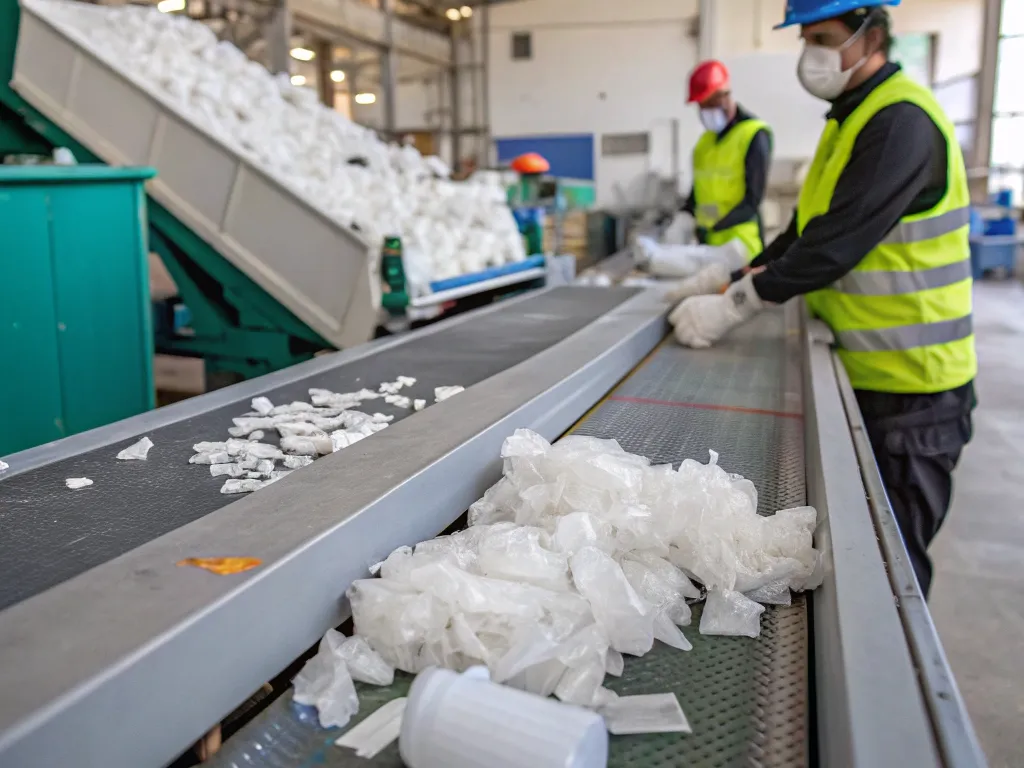In the rapidly evolving world of recycling, rigid plastic recycling machines have seen groundbreaking advancements. These innovations are helping industries reduce waste, save costs, and improve efficiency. Let’s explore the top five game-changing technologies revolutionizing this field in 2024.
1. AI-Powered Sorting Systems
Artificial intelligence is leading the charge in enhancing recycling precision. AI-powered sorting systems now use advanced machine learning algorithms and vision technology to accurately identify and separate different types of rigid plastics.
How It Works:
• Real-time image analysis detects plastic types by color, shape, and polymer composition.
• Automated sorting ensures minimal contamination, improving the quality of recycled materials.
Key Benefits:
• Reduces manual labor.
• Increases efficiency and recycling rates.
2. High-Efficiency Shredders
New shredding technology has made it possible to process larger volumes of rigid plastics faster and more efficiently.
Features of Modern Shredders:
• Dual-shaft and multi-rotor designs for faster throughput.
• Smart sensors to prevent jams and optimize cutting speed.
Why It Matters:
These shredders enhance productivity and ensure uniform particle sizes, making downstream processing smoother.
3. Advanced Washing Systems
Innovative washing systems are now equipped to handle rigid plastics with intricate designs, such as containers with labels or multiple layers.
What’s New:
• Ultrasonic cleaning technology to remove stubborn contaminants.
• Closed-loop water systems that recycle washing water, minimizing resource use.
Environmental Impact:
These systems drastically reduce water and chemical consumption while delivering pristine plastic flakes.
4. Energy-Efficient Extruders
Extrusion is a critical step in recycling rigid plastics, and the latest extruders are focused on sustainability and efficiency.
Latest Developments:
• Incorporation of variable speed drives (VSDs) to optimize energy use.
• Use of bi-metallic barrels for better heat transfer and longevity.
The Outcome:
Lower energy costs and higher throughput with consistent quality pellets.
5. Automated Quality Control Systems
The integration of automated quality control ensures that the recycled materials meet the highest standards before leaving the facility.
Key Components:
• Laser scanners and spectrometers for real-time analysis of plastic composition.
• Automatic rejection systems for non-conforming materials.
Benefits:
• Reduces waste by ensuring only high-quality recycled plastic is produced.
• Improves trust and compliance with industry standards.
Conclusion
The innovations in rigid plastic recycling machines are not just transforming the recycling industry but also contributing to a more sustainable future. With AI, energy-efficient technologies, and advanced processing systems, 2024 is shaping up to be a pivotal year for recycling.
For more insights on how these technologies can benefit your business, check out our guide to sustainable recycling solutions.



